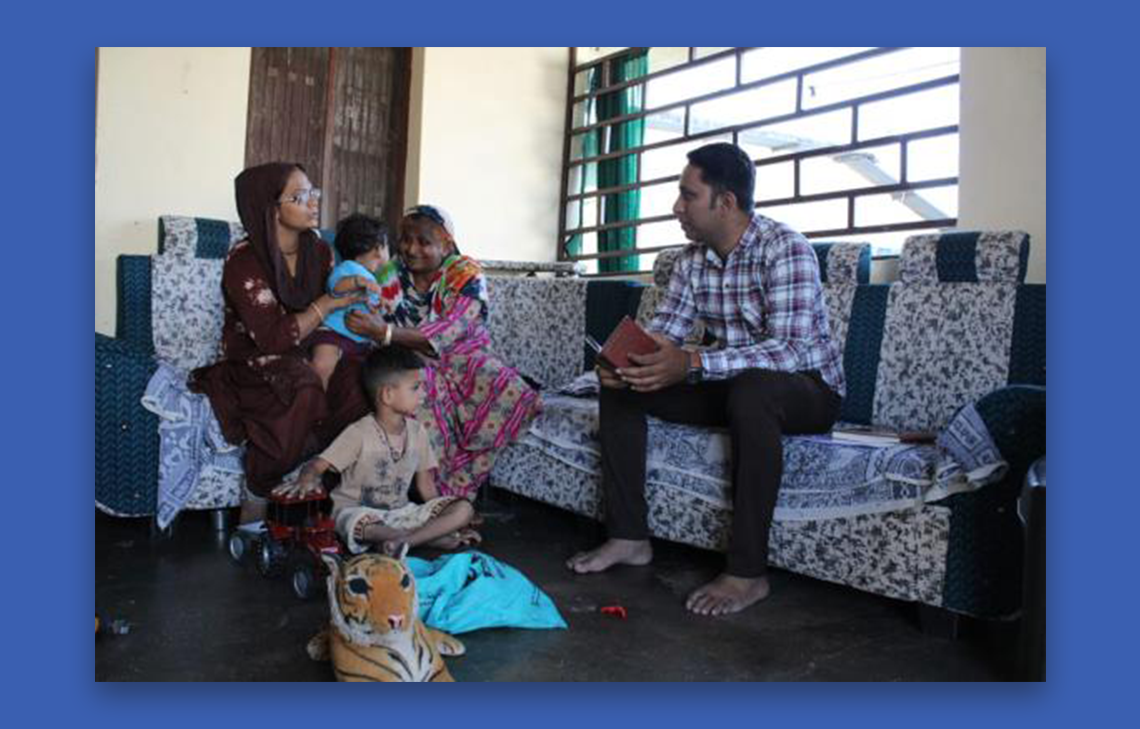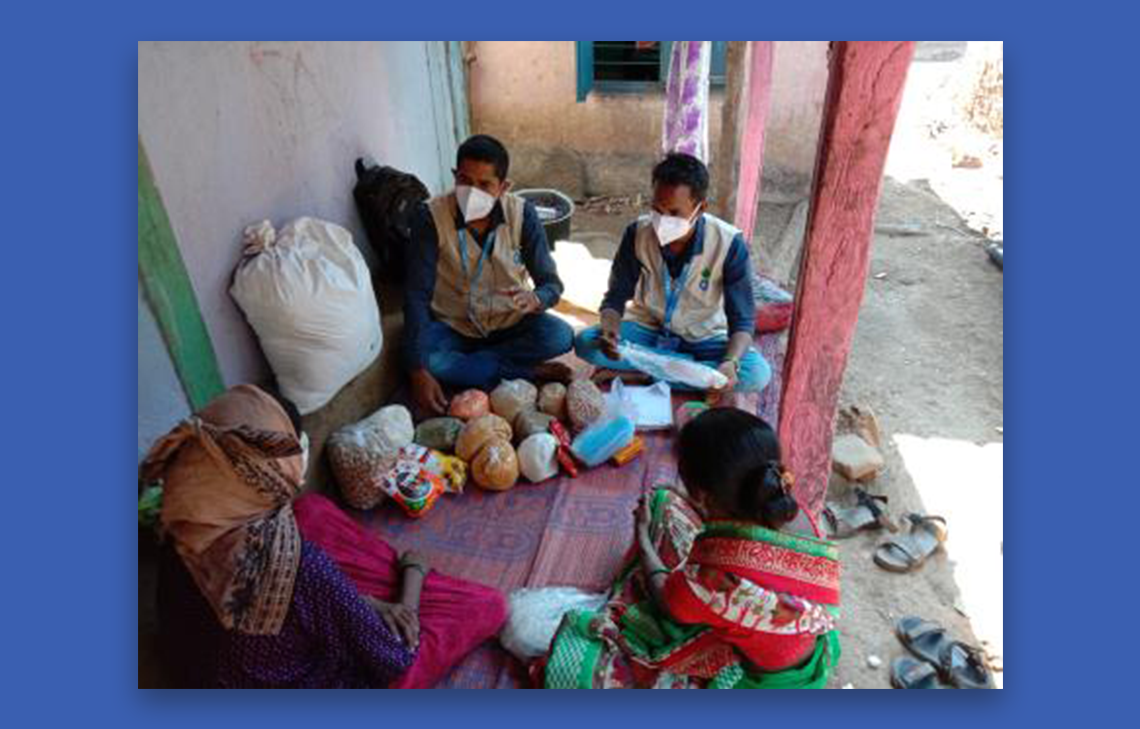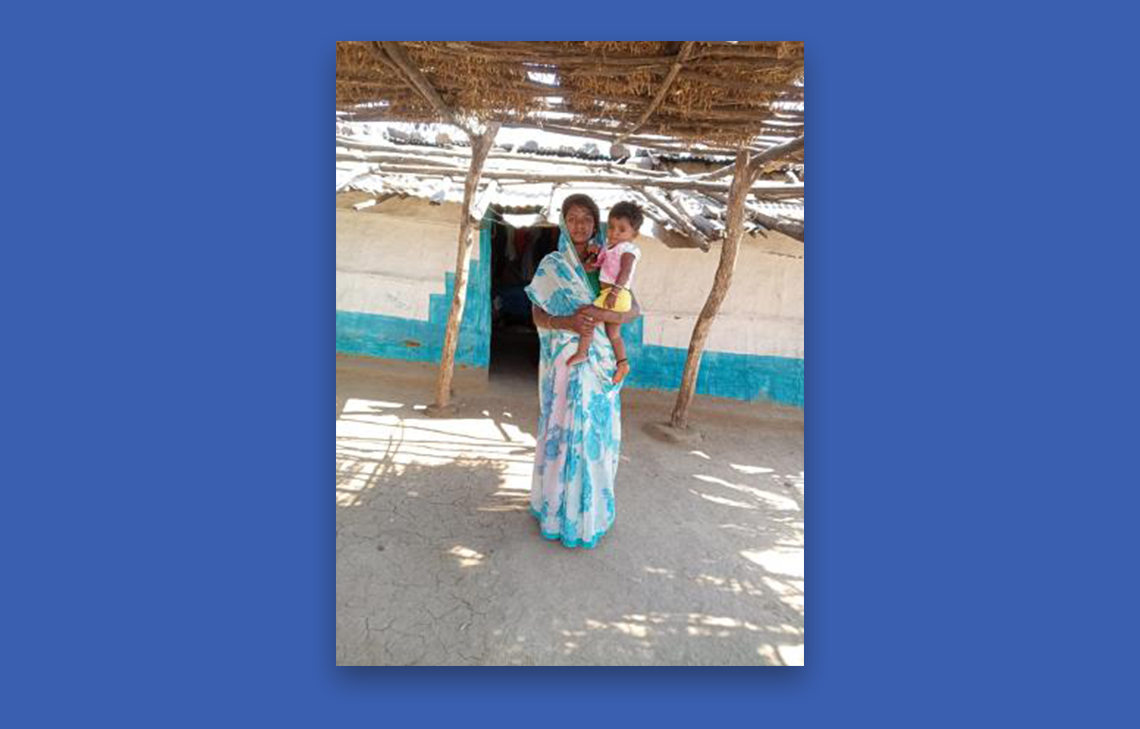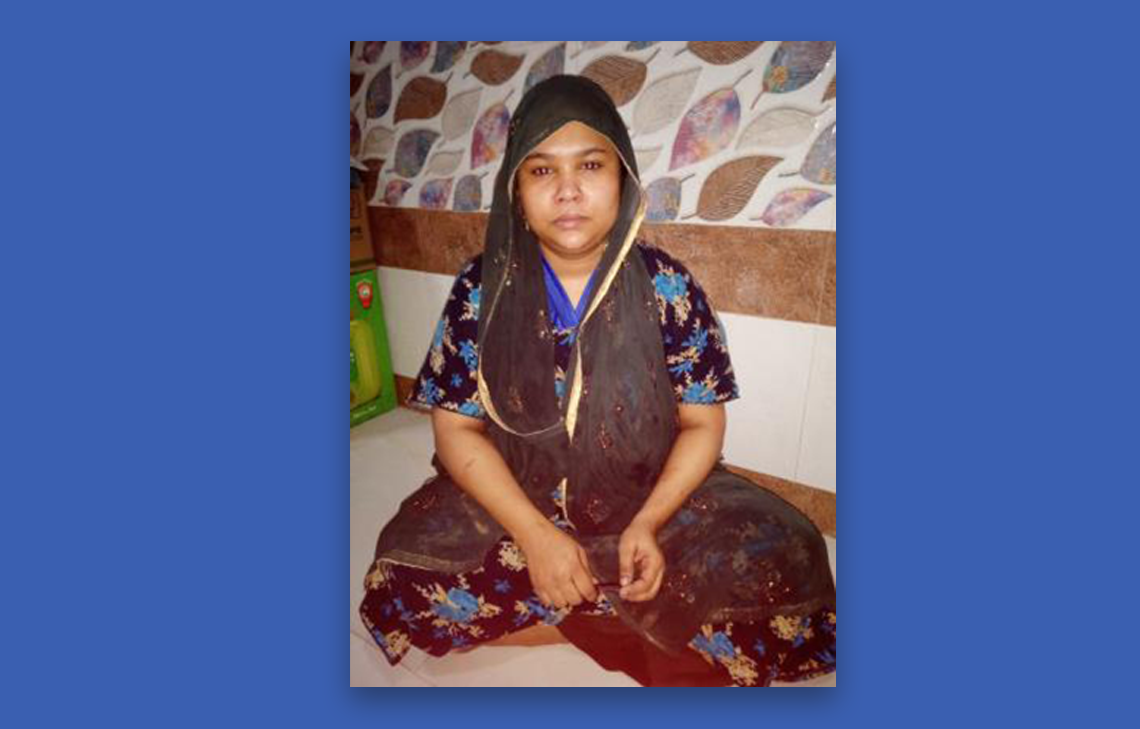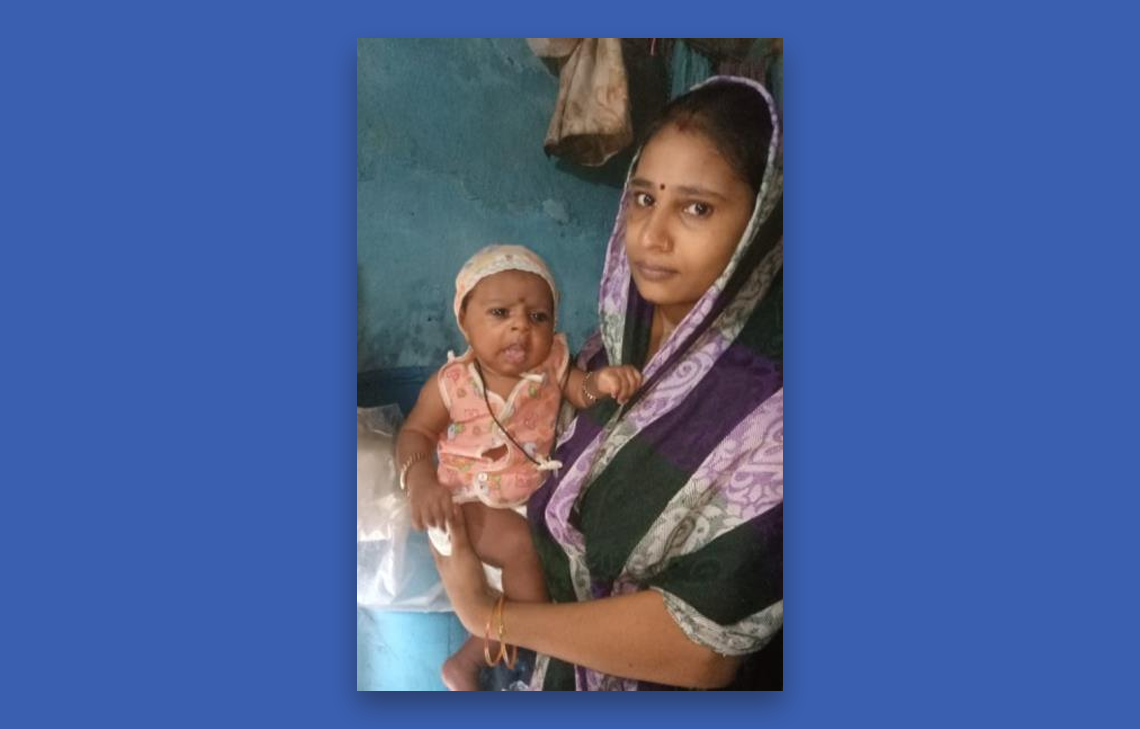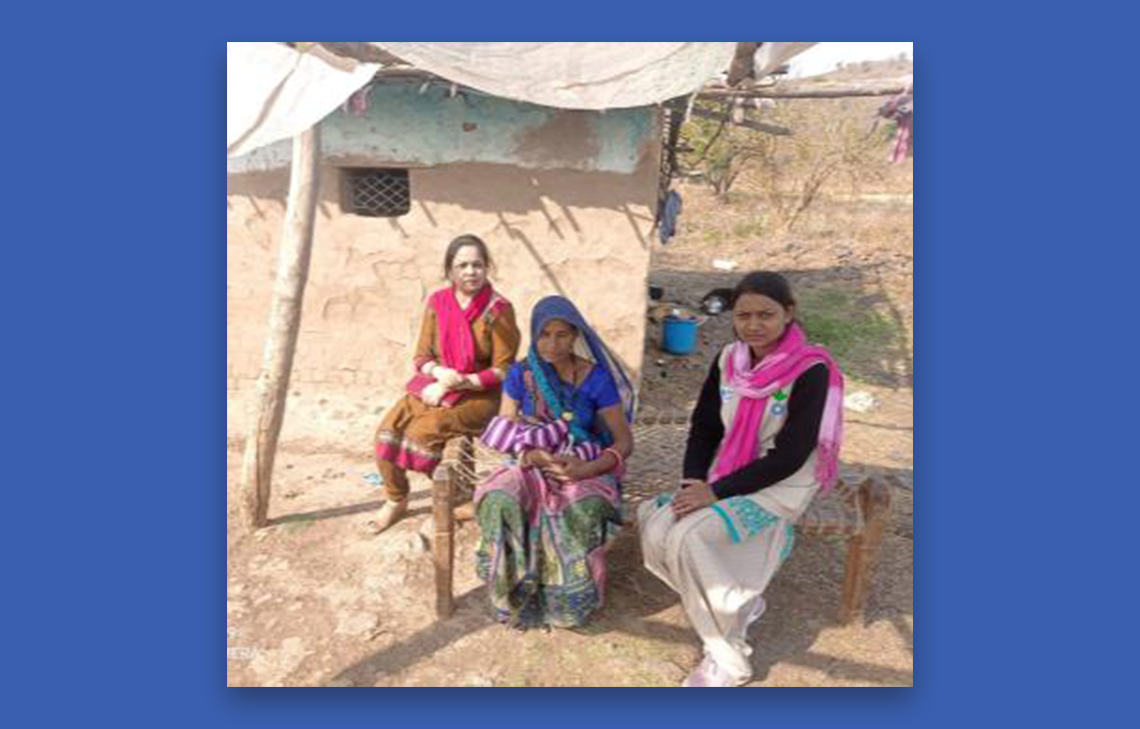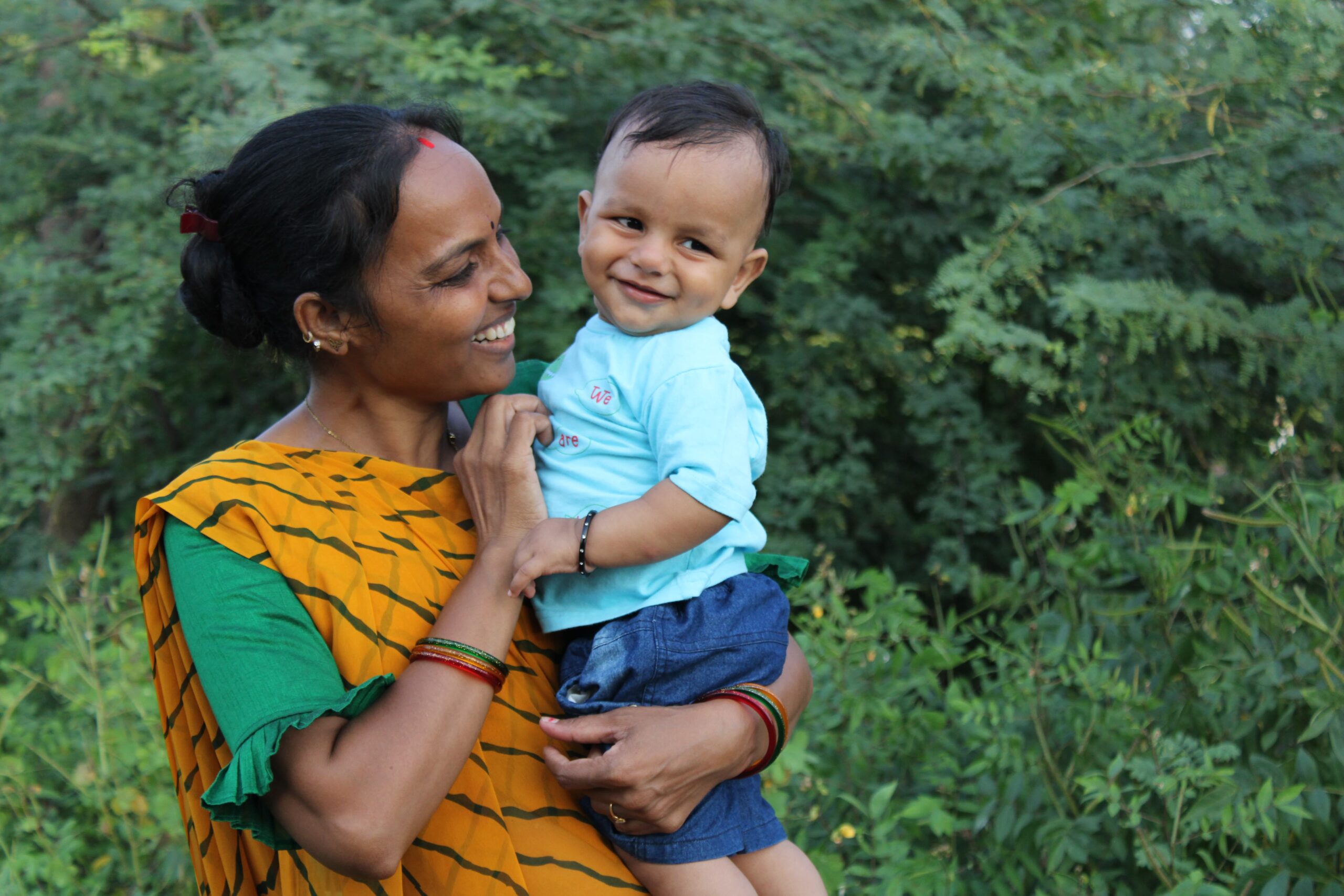Gram Chaurakhadi is nestled along the banks of a river, near the border of Madhya Pradesh, and is surrounded by mountains on all sides. The village is predominantly inhabited by the Sahariya community. While the primary health center is located 15 kilometers away, the sub-health center is closer, situated 5 kilometers away in Bil Kheda Dang.
On June 14, 2019, during a screening session, Kishan was identified as severely malnourished, with a MUAC (Mid Upper Arm Circumference) of 94. His mother passed away when he was just 5 months old, and since then, he has been under the care of his grandmother, Dulari Bai Sahariya, and his grandfather, Mohanlal. When Kishan developed diarrhea and fever, his family sought help from practitioners of witchcraft, but his condition did not improve. As part of these rituals, a goat was sacrificed twice, costing them more than 10,000 rupees. Despite visiting a private doctor in Devri, Kishan’s health continued to deteriorate.
Following a screening conducted by our community mobilizer, it was evident that Kishan’s condition was critical. His grandparents and father were immediately informed about the Malnutrition Treatment Center (MTC), and Kishan was admitted on the same day.
After some initial improvement, Kishan’s grandmother brought him back to the village without consulting the doctor, staying at the MTC for only 5 days. Since Kishan was still unwell, he was sent to the Baran MTC for further treatment through the Anganwadi worker and our community mobilizer. After a noticeable improvement, Kishan’s grandmother brought him back home, following the doctor’s advice. Subsequently, our community mobilizer made regular follow-up visits to Kishan’s home, guiding his grandmother on preparing nutritious meals and providing nutritional support from the Anganwadi. The visits emphasized the importance of nutrition and a balanced diet. The Anganwadi worker was also instructed to visit Kishan’s home regularly.
Through persistent efforts, Kishan’s condition gradually improved. Today, seeing him smile and play, we are immensely gratified.




